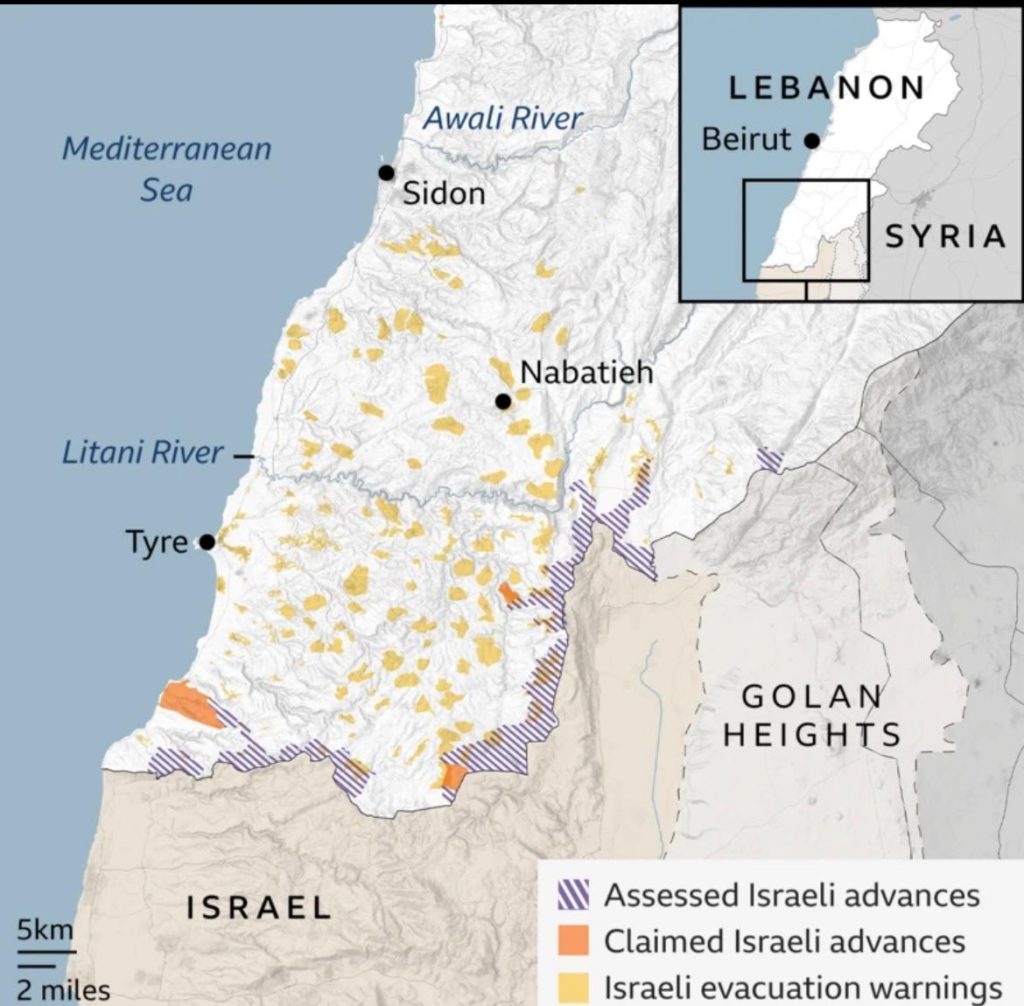ISRAEL- HEZBOLLAH CEASEFIRE AND AFTERMATH IN MIDDLE EAST
- A ceasefire between Israel-Lebanon and Iran backed militant group Hezbollah , brokered by the US and France came into effect on 26 November 2024 . The ceasefire calls for an initial two-months halt to fighting and requires Hezbollah to end its armed presence in southern Lebanon, while Israeli troops are to return to their side of the border. As an overseeing mechanism, thousands of additional Lebanese troops and UN peacekeepers would deploy in the south and an international panel headed by the US would monitor compliance. Both Israel and Hezbollah have claimed the truce a victory.The cease fire came into effect at 4 AM Wednesday, a day after Israel carried out its most intense air strikes in Beirut in which at least 42 people were killed. There appears to be a disagreement over whether Israel would have the right to strike Hezbollah if it believed that the militants had violated the agreement, a clause rejected by Hezbollah .
- The Biden Administration announced ceasefire does not address devastating on-going war of over one year in Gaza. US has made many efforts over the year to broker a ceasefire and hostages release but the talks have failed. Biden has also announced further peace efforts with other stakeholders holders in Midfle East like Saudi Arabia, Turkey and UAE.US President elect Trump has vowed to bring pease to Middle East and end the war in Ukraine in his electioneering campaign but the modalities have not been specified.
- The cessation of hostilities in Lebanon is expected to reduce the likelihood of a direct war between Israel and Iran , which backs Hezbollah and Hamas and had two direct confrontations with Israel during this year . A day after the announcement of cease fire Hamas also announced willingness for a ceasefire but Israeli PM , Netanyahu in a startling statement that,”he is prepared for a ceasefire in Gaza but the war will continue “.
- Since October 2023, Hezbollah along with other members of the Iranian led Axis of Resistance , pledged to attack and harass Israel in solidarity with the affected Palestinians in Gaza. As a result, Israel found itself surrounded and battling Hamas in Palestine, Ansar Allah ( Houthis) in Yemen , paramilitaries in Syria and Iraq, Hezbollah in Lebanon and the state of Iran. The 26/11 Agreement should in theory lead to a permanent cessation of hostilities between Israel and Hezbollah but the the past precedent of a similar UN brokered 2006 agreement does not corroborate a lasting peace unless a political solution to the Israeli- Palestine conflict is found.The Islamic Resistance in Iraq a coalition of armed groups, said that the decision by Hezbollah to halt the fighting was “ purely Lebanese” and that there would be no let up in its own territory. The breakaway of one party from the collective group of anti- Israel non state- actors would , most likely not prevent the other factions to continue their fighting against Israel and could even lead to more groups joining the Axis. The recent ceasefire creates an ideological and narrative dilemma for the Axis . There are certain groups in Iraq where their bread and butter is the transactional fight . Groups such as Kataeb Hezbollah though nominally loyal to Iran have in recent years become autonomous such as when the faction killed three US servicemen in Jordan in January .Even Lebanon and Syria are a‘ compartmentalised ceasefire’ and the other members of the Axis are unlikely to rein in their activities
- In conclusion, the ceasefire between Israel and Hezbollah appears to be a temporary measures as even between the signatories there is a disagreement on the use of retaliation by Israel in response to any violation by Hezbollah. A similar agreement of 2006 brokered by UN failed as there was no political solution to the Israel – Palestine crisis . This agreement also does not address the Gaza conflict between Israel and Hamas which has resulted in thousands of human losses . This Agreement remains Lebanon specific and could provide Israel a pretext to target militant groups in the neighbouring Syria and Iraq . Iran, another major player in the Region is also tacitly critical of the ceasefire as it could embolden Israel in targeting other Iran backed militant groups. The prospects of peace in the Middle East have received a new makeup but its durability remains sceptical !

